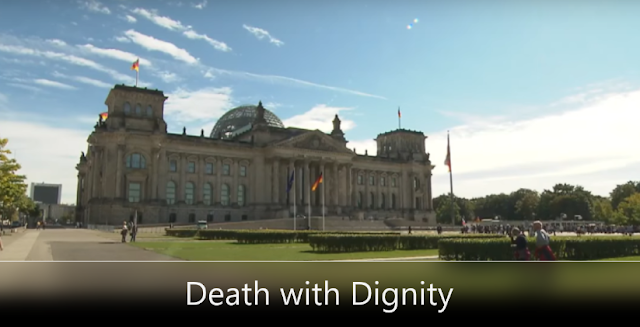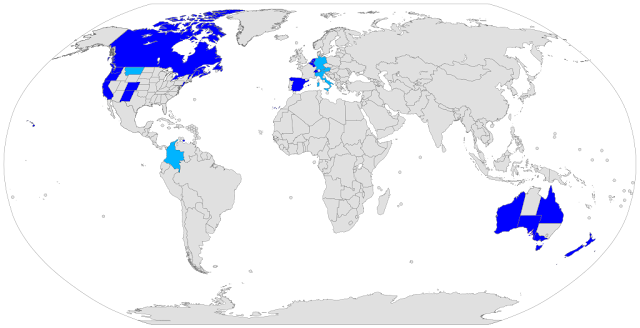Staying positive on Blue Monday
However, there is no scientific evidence to support the idea of the "most depressing day of the year." Mental health issues can occur at any time and are influenced by a variety of personal, social, and environmental factors. Nevertheless, the concept of Blue Monday has gained broad acceptance, particularly because it resonates with the feelings many people experience in January—an emotional low after the holiday season and the stress of a new year.
How to Handle Blue Monday
While Blue Monday may be based on a combination of social and environmental factors, there are several strategies that individuals can use to better cope with the challenges it presents. Rather than allowing feelings of sadness to dominate the day, these practical tips can help foster a sense of well-being and improve emotional resilience:
Acknowledge Your Feelings: Recognize that it’s normal to feel down from time to time, and understand that Blue Monday may simply be a manifestation of a natural dip in energy levels. Allowing yourself to feel these emotions without judgment can provide a sense of relief.
Set Realistic Goals: If your New Year’s resolutions are already slipping, don’t be discouraged. Rather than giving up entirely, adjust your goals to be more achievable. Break larger objectives into smaller, manageable steps to create a sense of accomplishment and motivation.
Get Moving: Physical activity is one of the most effective ways to improve mood. Exercise releases endorphins, the body’s natural mood-boosting chemicals. Even a short walk outside or a quick workout can help alleviate feelings of sadness or sluggishness. (I took the picture above during my Sunday walk yesterday)
Seek Sunlight: If you are dealing with the winter blues or not so good thoughts, try to spend as much time outside in natural light as possible. If that’s not feasible, consider investing in a light therapy box that mimics natural sunlight.
Practice Self-Care: Prioritize self-care activities that bring you comfort, relaxation, and joy. Whether it’s listening to uplifting music (as I suggested 2 years ago on Blue Monday), reading, taking a bath, cooking a favorite meal, or simply resting, allowing yourself time to recharge is essential for mental well-being.
Connect with Others: Social connections are key to maintaining good mental health. Reach out to friends, family, or colleagues to talk about how you’re feeling. Sometimes, just sharing your emotions can alleviate a significant amount of stress and make you feel supported.
Consider Professional Support: If you’re feeling persistently low or are struggling with mental health issues such as depression, it’s important to seek professional help. A counselor, therapist, or doctor can provide guidance, support, and strategies to improve your emotional well-being.
Conclusion
Instead of viewing Blue Monday as an insurmountable day, we can shift our focus to small, personal positive highlights that can make a real difference in our well-being.Monday is a fresh start. It's never too late to dig in and begin a new journey of success, joy and live your life how you want it to be.
If you or someone you know is experiencing mental health issues and needs immediate support, ...
...here are some important helplines for the USA, Canada, and the UK:
United States:
- National Suicide Prevention Lifeline (988): Dial 988 for immediate mental health support and suicide prevention.
- Crisis Text Line: Text HELLO to 741741 for text-based support.
- SAMHSA National Helpline (Substance Abuse and Mental Health Services Administration): Call 1-800-662-HELP (4357) for 24/7 free and confidential support for mental health and substance use.
Canada:
- Crisis Services Canada: Call 1-833-456-4566 (24/7 helpline) or text 45645 for text-based support.
- Kids Help Phone: Call 1-800-668-6868 or text 686868 for youth-specific mental health support.
- Ontario Suicide Prevention Network: Call 1-877-825-9011 for suicide prevention support.
United Kingdom:
- Samaritans: Call 116 123 (available 24/7 for confidential support).
- NHS 111: Call 111 for non-emergency medical advice, including mental health support.
- Text SHOUT: Text SHOUT to 85258 for 24/7 text-based support.
Please reach out to any of these helplines if you need help. It’s important to know that you're not alone, and there is support available to you.
Contacts for Germany - Kontakte für Deutschland
Krisenchat für Menschen unter 25 Jahren
Krisenchat bietet psychosoziale Beratung für Kinder und Jugendliche unter 25 Jahren. Gechattet wird auf Deutsch. Der Chat erfolgt via SMS oder Whatsapp, direkt über die Webseite von Krisenchat.
krisenchat Deutsch | 24/7 Krisenberatung per Chat krisenchat english | 24/7 Krisenberatung per Chat
Kontakte - Hilfe Im Fall von psychiatrischer Krisen
Im Notfall
Notaufnahme in der Akutpsychiatrie: In größeren psychiatrischen Kliniken existieren Notaufnahmen mit Fachärzt*innen, die ähnlich funktionieren wie die körperliche Notfallmedizin. Diese sind 24 Stunden täglich erreichbar.
Schnelle Hilfe im Notfall: 112 (Rettungsdienst)
Bei Vergiftungen:
Bei lebensbedrohlichen Symptomen wie Bewusstlosigkeit, Krampfanfällen etc. rufen Sie bitte direkt den Notarzt – in Deutschland über die Nummer 112
Giftnotruf
Kostenfreie Informationen bei Verdacht auf Vergiftungen geben rund um die Uhr folgende Giftnotrufe:
Giftnotruf der Charité: 030 19240
Giftnotruf der TU München: 089 19240
Vergiftungs-Informations-Zentrale: 0761 19240
Hilfe - Rufnummern und Websites
- Sozialpsychiatrischer Dienst
- eigenen Wohnort
Telefon: 0228 71002424
Nationale Kontakt- und Informationsstelle (NAKOS) zur Anregung und Unterstützung von Selbsthilfegruppen
Die NAKOS ist die zentrale bundesweite Anlaufstelle in Deutschland rund um das Thema Selbsthilfe. Als Knotenpunkt vernetzt NAKOS die relevanten Akteure. Interessierte, Betroffene und Angehörige finden hier alle notwendigen Informationen. Dabei zeigt NAKOS die Vielfalt und Möglichkeiten gemeinschaftlicher Selbsthilfe auf und fördert und vertritt sie gegenüber Politik und Gesellschaft.
Telefon: 030 - 31 01 89 60
Hilfe - Suizidprävention
Telefonseelsorge, bundeseinheitliche Nummern
Die Telefonseelsorge bietet kostenfreie Beratung per Telefon, Mail, Chat oder vor Ort. Sie ist für jeden da, für alte und junge Menschen, Berufstätige, Nicht-Berufstätige, Auszubildende, Rentner, für Menschen jeder Glaubensgemeinschaft und natürlich auch Menschen ohne Kirchenzugehörigkeit. Die Gespräche sind anonym und die Mitarbeiter*innen rund um die Uhr erreichbar.
Telefon. 116 123
http://www.telefonseelsorge.de/
Evangelisch.: 0800 111 0 111
Katholisch: 0800 111 0 222
Die Telefonseelsorge hat eine gute und bewährte App entwickelt: den KrisenKompass.
Der KrisenKompass ist eine App, die dank ihrer Funktionsweise eine Art Notfallkoffer für Krisensituationen darstellt. In den Koffer können Sie positive Gedanken oder Fotos, Erinnerungen oder Lieder packen – Ihr persönliches Rüstzeug für schlechte Momente. Dazu dienen etwa die Tagebuchfunktion und die persönlichen Archive.
Darüber hinaus gibt es Materialien, die in Krisensituationen hilfreich sind, Hinweise zu beruhigenden Techniken, sowie direkte Kontaktmöglichkeiten zur TelefonSeelsorge und anderen professionellen Anlaufstellen. Was stabilisiert Sie, was hilft Ihnen jetzt gerade? Auf diese Fragen gibt die App Ihnen Antwort. KrisenKompass - App
Kinder- und Jugendtelefon: Das Angebot des Vereins „Nummer gegen Kummer“ richtet sich vor allem an Kinder und Jugendliche, die in einer schwierigen Situation stecken. Erreichbar montags bis sonnabends von 14 bis 20 Uhr unter 11 6 111 oder 0800 – 111 0 333. Am Sonnabend nehmen die jungen Berater des Teams „Jugendliche beraten Jugendliche“ die Gespräche an. nummergegenkummer.de.
Elterntelefon: 0800 111 0 550
Muslimisches Seelsorge-Telefon: Die Mitarbeiter von MuTeS sind 24 Stunden unter 030 - 443 509 821 zu erreichen. Ein Teil von ihnen spricht auch türkisch. mutes.de
Jüdische Bundesweite telefonische Hotline folgt asap
Hebräischsprachige Hotline "Matan": ‚Matan‘ ist ein Projekt der Beratungsstelle ‚OFEK‚ e. V. und der Zentralwohlfahrtsstelle der Juden in Deutschland (ZWST). Telefonnummer: 0800 - 000 16 42 Hotline-Zeiten: Jeden Tag der Woche 20:00-22:00 - Das Projekt wird in Zusammenarbeit mit der Kirchlichen Telefonseelsorge (KTS) durchgeführt und durch die Deutsche Fernsehlotterie gefördert.
Deutsche Gesellschaft für Suizidprävention:
Eine Übersicht aller telefonischer, regionaler, Online- und Mail-Beratungsangebote in Deutschland gibt es unter suizidprophylaxe.de






Comments
Post a Comment